An interesting mixture of news: a look around through the eyes of the House of Lords library and a lengthy analysis of the differences between the 4 nations, a hopeful look forward through the UUK manifesto for the election, Research England are taking steps on spin-outs and there are serious concerns about abuse of franchised provision arrangements in some parts of the sector. I also look at the latest developments in two sad cases of student deaths and what the might mean for the sector going forwards. A look at Scottish and Welsh funding for HE just makes everyone scratch their heads more about how to make the numbers add up.
Politics and Parliament
Here’s something cheerful in the context of all the criticism of the sector: a House of Lords library briefing on the sector’s contribution to the economy and levelling up. This has come out because there is a motion in the House of Lords in early March: Lord Blunkett (Labour) to move that this House takes note of the contribution of higher education to national growth, productivity and levelling up.
As we were reminded by all this week’s chaos and anger about the Gaza motion and its various amendments, these “motions” have no actual force: they don’t directly lead to any action or decision, they are usually very party political in nature and it is not unusual for one party or another to decline to vote on them at all so that while they may be passed there is even less meaning to be taken from them.
That is not to say that they don’t have some impact: the debate itself can influence perceptions in the longer term and the briefings are always interesting. A reminder that briefings from the libraries of the House of Commons and the House of Lords are not party political: they are intended to be factual and to be used by all potential participants in the debate. As such they provide a useful summary of the current state of affairs.
So to this one:
Citing a London Economics report for UUK in August 2023: Its analysis estimated that the ‘economic footprint’ of HE providers across the UK resulted in:
- 768,000 full-time jobs
- £71bn in terms of gross value added (GVA)
- £116bn in terms of general economic output
And goes on to quote from the report: In addition to the large impact within the government, health, and education sector itself (£52.8bn of economic output), the activities of UK HE providers are estimated to generate particularly large impacts within the distribution, transport, hotels, and restaurants sector (£15.4bn), the production sector (£12.6bn), the real estate sector (£9.7bn), and the professional and support activities sector (£9.2bn).
Using a separate London Economics Report with HEPI and Kaplan International Pathways from May 2023 it also refers to findings about the contribution of international students: The average impact was highest for parliamentary constituencies in London (with an average net impact of £131mn per constituency, equivalent to £1,040 per resident). The average impact per parliamentary constituency in the North East and Scotland was estimated at £640 and £750 respectively per member of the resident population; between £500 and £510 per member of the resident population in the East and West Midlands, Northern Ireland, and Yorkshire and the Humber; and between £360 and £390 in the North West, South East, South West, the East of England, and Wales
There is a load of data about participation, and then this on outcomes, using the government’s graduate labour market statistics from June 2023
- Looking at the labour market as a whole (therefore not just 2020/21 graduates), the government has identified better employment outcomes for graduates than non-graduates:[28]
- In 2022, the employment rate for working-age graduates (those aged 16–64) was 87.3%, an increase of 0.6 percentage points on 2021 (86.6%). For working-age postgraduates, the employment rate was 89.3%, an increase of 1.1 percentage points on 2021 (88.2%). For working-age non-graduates, the employment rate was 69.6%, a decrease of 0.2 percentage points from 2021 (69.8%).
- In 2022, 66.3% of working-age graduates were in high-skilled employment, compared to 78.3% of postgraduates and 23.6% of non-graduates.
- In 2022, the median nominal salary for working-age graduates was £38,500. This was £11,500 more than working-age non-graduates (£27,000), but £6,500 less than working-age postgraduates (£45,000).
The paper goes on to talk about government policy, including its levelling up strategy, but also its policy statement from July 2023 which was the final response to the Augar review from 2019. You’ll remember this one, it talked about promoting level 4 and 5 courses, applying student numbers controls to provision with “poor outcomes”, and proposed fee caps and loan limits for foundation years. [You will also recall that this confirmed they would not go ahead with the minimum entry requirements that had been proposed].
In the context of international students, the paper notes the concerns about immigration and the recent changes to visa rules to prevent most students bringing their families to the UK. Following some exciting stories in the press about entry standards (which were covered in the last update), the paper notes the recent announcement by UUK that they will review admissions practices for international students.
UUK has recently announced a review of admissions practices for international students following concerns that institutions were lowering admission standards to bolster recruitment and fees. This will include reviews of:
- foundation programmes for international and domestic students
- the agent quality framework, which provides tools and best practice guidance for when universities use agents to help recruit international students
- the admissions code of practice, which sets out expectations for university processes
There’s an analysis of responses to the levelling up approach including a reference to a report by Lord Willetts from October 2023 which set out four groups of benefits that higher education can offer individuals and society.
It should be an interesting debate, and a useful reminder of the value of higher education. Just don’t expect any policy changes as a result.
Universities UK manifesto
The UUK manifesto sets out a wish list for the sector. It all looks very expensive and so while ambitious, unlikely to be replicated in anyone’s actual manifesto. We can expect to see more of these over the next few months. Research Professional have the story here.
Future of apprenticeships:
An article in the FT by Alison Wolf calls for the percentage of the apprenticeship levy to be reduced, for it to be extended to smaller businesses and for limits what it can be used for.
Regional inequalities
In the meantime, the Education Policy Institute, along with a range of partners, have published a report Comparing policies, participation and inequalities across UK post-16 education and training landscapes. This is an interim report and compares contexts, choices and outcomes across the 4 nations. It’s a weighty piece and mostly about 16-18 education, but some highlights relevant to HE include:
- The level of policy churn experienced within UK E&T is enormous and potentially damaging for all the individuals and institutions involved. Constant policy churn emphasises the view that the E&T system is at best flawed and at worst failing. This has the potential to harm the morale of staff and stakeholders involved in the system as well as negatively shaping the aspirations of young people and their families and their perceptions of different E&T pathways. ….[they may be talking about FE mostly here but this applies to HE too, and the impact of this washes through to post-18 education]
- When we were able to look at socio-economic inequalities in access and outcomes, we observed gaping differences in educational outcomes from choices. Those from more disadvantaged backgrounds were less likely to achieve A level or equivalent qualifications, and less likely to achieve degree-level qualifications. As a result, they are then less likely to be in employment, will have lower earnings and less likely to be in professional occupations when they do enter the labour market. These inequalities are of similar size across all four nations, with just slightly higher university attendance amongst the most disadvantaged students in England.
- Outcomes are particularly concerning in Wales, including “Welsh boys having the lowest levels of higher education participation”
Recommendations are mostly about schools and FE not HE, but we would agree with this:
- A new stable settlement is needed. In the short run, a new vision and policy approach for post-16 E&T may be needed. This will require political consensus within each nation on goals and ambitions that can be realised, well-funded institutions and structures, and a stable set of qualifications
In the section about funding it notes the divide between FE and HE (from p24):
- Historically, the four nations have maintained a divided system that rests on a categorical distinction between academic and vocational knowledge and skills. This is rooted in entrenched class division and a perception of HE as a gateway to privilege, contributing to an esteem deficit for FE and negatively influencing young people’s choices (and their families’ perceptions of the sector) when considering available pathways to a good future. Arguably this restricts access and progression and emphasises differentiation and social selection at the expense of social inclusion and the needs of individual learners. …
- However, the relationship between FE and HE has become increasingly blurred over the last decade. Universities have been increasingly encroaching on FE spaces through a variety of sub-degree level provision, including, but not limited to, foundation degrees while degree level qualifications are offered by some FE colleges, with degree apprenticeships sitting in a hybrid vocational-academic space….
- As each attempts to operate in the others’ space, competitive behaviours are increased and colonisation, rather than quality or diversity of provision, becomes the de facto driver. ….
Research and knowledge exchange: Spinouts
You will recall that the government published alongside the Autumn Statement its response to the Independent Review of University Spin-out Companies. The government said that it accepted all the recommendations of the review and would implement them all. These were:
- Government will work with universities to improve deal terms, data and transparency in the sector. This includes reporting on which universities have implemented the policies recommended by the review, creating a database of spin-out companies and supporting the sector to develop a full set of deal terms guidance for different sectors, including template term sheets….
- We are providing £20 million for a new cross-disciplinary proof-of-concept research programme. Research England will review the Higher Education Innovation Fund (HEIF) to ensure commercialisation functions in universities are appropriately funded and incentivised. We will set up a pilot of shared technology transfer functions for universities….
- Government will map and publish support services available to founders and develop proposals to fill gaps or improve support. UK Research and Innovation (UKRI) will ensure that all PhD students it funds have the option to attend high quality entrepreneurship training and increased opportunities to undertake internships in local spin-outs, venture capital firms or technology transfer offices. ….
- Government will continue its work to support access to finance through the Long-term Investment for Technology and Science (LIFTS) scheme, establishing a new Growth Fund within the British Business Bank, delivering a new generation of British Business Bank Nations and Regions Investment Funds and extending British Patient Capital to 2033-34 with £3 billion of funding. The government will also continue to deliver the Mansion House reforms, including improvements to our capital markets. …
- To support our ambition to make the UK’s Research, Development and Innovation landscape more open and navigable, the government will work with UKRI and the National Academies to develop opportunities to improve their fellowship offer for commercialisation, including the option of ‘academic returner’ fellows. ….
Research England have now set out how they are going to do all this. There is a blog here.
- They want universities to let them know if they have adopted the best practice policies ahead of a stock take at the end of 2024. The set of best practice policies will be published later in the Spring. They don’t think this is relevant to very many providers.
- HESA is going to consult in April 2023 on collecting additional data
- Reviewing HEIF: not doing anything now as they have enough data for review, approach will be published in the Spring
- Pilot of technology transfer arrangements: more to come in the Spring
And this: Our Connecting Capability Fund (CCF)-RED programme is our main approach to developing university commercialisation capability, through collaboration. We are shortly to publish our priority commercialisation themes for CCF-RED including a first opportunity to bid
Education: Subcontracted provision
In late January there was a National Audit Office report that triggered press interest into allegedly fraudulent outsourced providers of HE. It doesn’t name providers. As a result there is a hearing at the Public Accounts Committee on 26th Feb. More here from Wonkhe.
We already knew that subcontracted provision is one of the OfS priorities for quality assurance reviews this year but those quality assurance reviews are not usually announced in advance and we don’t believe that they have been kicked off for this year yet.
This week the OfS have announced a formal investigation into one university in relation to its subcontracted provision, looking at whether:
- the courses delivered by sub contractual partners are high quality
- the lead provider has effective management and governance in place for sub contractual partners
- the lead provider has complied with the requirements relating to provision of information to the OfS
A Wonkhe article on the formal investigation: 22nd Feb 24 highlights the large proportion of subcontracted students at this provider.
Context from the NAO report:
- Universities ….may create partnerships, also known as franchises, with other institutions to provide courses on their behalf. The … lead provider.. registers those students studying at their franchise partners, which allows them to apply for funding administered by the Student Loans Company (SLC).
- Students may apply for loans covering tuition fees … and maintenance support …. Students normally repay these loans, including accrued interest, once they have finished studying and are earning above a certain amount. These loans represent a long-term liability to taxpayers if not repaid. …. during the 2022/23 academic year SLC made £1.2 billion of loans for tuition fees and maintenance for these [franchised] students.
- Lead providers must be registered with the …OfS…, for their franchised provider’s students to be eligible for student funding. Franchised providers do not need to register. Lead providers retain responsibility for protecting all students’ interests, including teaching quality at franchised providers. They also confirm to SLC that students at their franchised providers are, and remain, eligible for student funding….
Summary findings:
- …The number of students enrolled at franchised providers more than doubled from 50,440 in 2018/19 to 108,600 in 2021/22. Much of this expansion has been in a relatively small number of providers, with eight of the 114 lead providers responsible for 91% of the growth. Despite this increase, in 2021/22 those studying at franchised providers represented a small proportion, 4.7%, of the total student population…
- ….Government intended the Higher Education and Research Act 2017 (HERA) to encourage providers to join the sector and improve innovation, diversity and productivity. DfE considers that franchising helps widen access to higher education. In 2021/22, 57,470 out of 97,000 (59%) students from England studying at franchised providers were from neighbourhoods classed as high deprivation, compared with 40% of students at all providers…
- …As a lead provider retains responsibility for a franchised provider’s compliance with these standards for their students, there is no statutory or regulatory obligation on franchised providers to register with OfS. In 2021/22, 229 (65%) of the 355 franchised providers were not registered…
- …Lead providers share fees with their franchised providers, the amount varying according to their contractual arrangements. OfS does not have detailed knowledge of these arrangements but, where it has, told us that some lead providers retained between 12.5% and 30% of tuition fee payments…
- …We have seen that some providers use agents or offer financial incentives to recruit students, activities which government does not prohibit or regulate. Government does not know how many providers use these practices, but those we have seen are used by franchised providers. One scheme offered students rewards for referring other people to the provider, with no limit on the number of referrals. There are no regulations to prohibit or regulate these practices, which may present risks to taxpayers’ and students’ interests. Students who sign up in response to incentives may be vulnerable to mis-sold loans, while also being potentially less likely to make repayments…
- …Over the past five years trend data show that, at franchised providers, detected fraud cases have increased faster than the proportion of SLC-funded students. In 2022/23, 53% of the £4.1 million fraud detected by SLC by value was at franchised providers…
- …Routine analysis by SLC detected suspicious patterns of activity involving franchised provider students across four lead providers. Further investigation by SLC raised concerns across a total of 10 lead providers. Following a request from SLC, DfE instructed SLC to suspend payment of tuition fees while cases under suspicion were investigated. This led to SLC identifying and challenging 3,563 suspicious applications associated with £59.8 million of student funding, with 25% of this money still withheld as at January 2023…
- …In May 2022 a lead provider disclosed to OfS, as required by its registration conditions, that it suspected widespread academic misconduct at one of its franchised providers and was undertaking investigations. Following investigation the lead provider withdrew the majority of the then 1,389 students enrolled at the franchised provider. SLC has recovered £6.1 million in respect of the tuition funding provided to withdrawn students. OfS has clawed back £172,600 of its grant funding paid to the provider in respect of these students. To date, DfE and OfS have not imposed other sanctions on providers…
- …There is insufficient evidence that students are attending and engaging with their courses. In determining a student’s eligibility for loan payments, and before making payments, SLC uses lead providers’ data to confirm students’ attendance. Lead providers self-assure their own data, also having responsibility for the accuracy of their franchised providers’ information. There is no effective standard against which to measure student engagement, which attendance helps demonstrate, and there is no legal or generally accepted definition of attendance…
- …Given SLC’s concerns about potentially fraudulent student loan claims, OfS required several lead providers to commission independent audits of their franchised provider controls and data submissions. This identified controls weaknesses. In October 2023, OfS announced that, for the first time, it would consider whether registered providers had franchise arrangements when deciding where to focus its work assessing student outcomes…
- … DfE is consulting stakeholders on potential changes to how providers are regulated. SLC has undertaken a ‘lessons learned’ exercise which proposed recommendations that need to be taken forward by other bodies, including OfS and DfE. …. DfE told us there had been discussions on potential policy options with representative bodies and universities with a large proportion of franchised provision…
There are some interesting articles from the last year here:
- A Wonkhe article from June 2023 that chillingly refers to “legal threats aimed at silencing the discussion”
- A Wonkhe article on what better regulation might look like: June 2023
- Wonkhe on the OfS priorities for quality reviews: October 23
- Wonkhe piece on the NAO report: Jan 2024
- A comment piece on Wonkhe on law regulation: January 2024
A HEPI paper from this week suggested some ways forward, describing what one provider (Buckinghamshire New University) already does and concluding: “We believe the solution is a strong sector-wide and sector-owned code of practice that requires higher education institutions to work together in the wider interests of students and stakeholders, including government and regulators. This would see higher education institutions establish effective consortia for each franchisee, simplifying and coordinating the multiple demands they place on franchisees, and strengthening the requirements to enhance quality and promote stability”.
Duty of care
There has been a long running campaign by bereaved parents, politicians and others to impose a “duty of care” on universities in relation to students with mental health issues, sometimes described as similar to universities being “in loco parentis” for students. The stories are always terribly sad and this is a difficult area, especially as students are adults and sometimes do not want to engage with university services or staff on these issues, and sometimes don’t want to involve their parents either. A little bit of clarity is emerging as a result of two recent cases. There is no legal duty of care (whatever that means) yet, but there is discussion about a responsibility on staff to “notice” and also about a duty to ensure that process and procedures don’t get in the way of reasonable adjustments.
This debate will continue: the government is pushing all universities to sign up to the University Mental Health Charter (BU has) and the OfS is also undertaking work on this. The government have a taskforce led by Professor Edward Peck, and I reported on their first stage report in the last policy update: you can find that report here and the policy update from 5th Feb here. It is a complex area but one where there will certainly be a lot more changes in approach to come: including potentially OfS licence conditions in the future.
I noted last time the recent coroner’s report into a student death at the University of Southampton. This Wonkhe article from January covers the story.
- Like so many students [Matthew Wickes] was diagnosed after he began on his course, and did not disclose his condition to the university – and so formal codified reasonable adjustments were not able to be put in place.
- … But despite the lack of disclosure, [the Coroner] does raise concerns about the “level of awareness, understanding and curiosity” of academic staff around the mental health of students – particularly in the post-pandemic climate – where “interruptions to their study and dysregulated student life have had a significant impact on their mental health”. The message seems to be – it was likely that there would be significant, long lasting mental health impacts from Covid and its lockdowns, which ought to have generated a strategic response in terms of staff capacity to recognise them.
- … There is a thread in this and similar cases that is about capacity to “notice”. [The Coroner] noted the university’s processes for “raising a concern” by academic staff through student hubs, and the university talked in the inquest about a new “early warning system” involving triggers around academic absence or changes in study or support behaviours. But [the Coroner]’s worry was more basic: I am concerned that in not ensuring that academic staff are at least armed with the ability to spot or to know when to make initial enquiries of students or are clearly guided on how best to do so (particularly with regard to an understanding of the needs and skills required to liaise with students with neurodiversity), there is a risk that an over-focus on academic policies and procedures will endure and that those students who are struggling to adhere to them will be missed or overlooked.
- For example, during the inquest the university had said that all staff were offered training on mental health management and provided with guidance on how to support students. But [the Coroner] said: I am concerned that aspects of this are not made compulsory for academic staff … It remains unclear as to who or how many staff have actually viewed or undertaken the online training around student mental health.
- …But while the coroner isn’t saying that all staff or all personal tutors should be counsellors or mental health experts, he is effectively saying that all students ought to be able to expect that the staff that teach and support them have a basic level of awareness and competency over student mental health.
- Even if an issue is identified, Wilkinson identified concerns with the interventions in place (particularly for neurodiverse students given an apparent focus on group based interventions) and also discussed concerns over the existence, frequency and accuracy of the recording and minuting of academic meetings with students: It was of concern to me that the university was unable to locate or provide clear minutes of supervisory catch ups, progress checks or agreed guidance or actions for Matthew. It was of further concern that the academic staff supporting and mentoring him in his third year had not provided written evidence of his progress or agreed minutes of actions etc to him.
The next case relates to the University of Bristol. Again, Wonkhe have the story.
- Natasha’s father, Robert Abrahart, brought a legal action against the university alleging it had contributed to his daughter’s death by discriminating against her on the grounds of Disability contrary to the Equality Act 2010, and by breaching a duty of care owed her under the law of negligence.
- In May 2022, a senior County Court Judge, Alex Ralton, ruled that the university discriminated against Natasha and that this contributed to her death. Ralton found that the university had breached its duty to make reasonable adjustments to the way it assessed Natasha, engaged in indirect Disability discrimination against Natasha, and treated Natasha unfavourably because of the consequences of her Disability.
- But Ralton did not find that the university owed Natasha a common law duty of care. The High Court has now considered both an appeal from the university, and a cross-appeal on the duty of care issue.
- The university’s appeal challenged the court’s finding that the university breached the duty to make reasonable adjustments, and challenged the court’s finding that the university breached section 15 of the Equality Act 2010 (discrimination arising from Disability). Both areas failed.
- …the university … failed in its argument that…the assessment of a student’s ability to explain laboratory work orally, to defend it and to answer questions on it was “a core competency of a professional scientist” and so not subject to the duty to make reasonable adjustments.
- …The appeal judge …overall found that the County Court’s judgement – that the university’s reliance on due process and medical evidence before making adjustments did not outweigh its duty under the Equality Act 2010 to make reasonable adjustments – was sound, particularly given its awareness of Natasha’s challenges and the impact on her ability to participate in oral assessments.
- Crucially, [the appeal judge] didn’t disagree with the County Court in rejecting the university’s arguments that it lacked sufficient knowledge or expertise as a defence for its inaction – and found that the university’s internal regulations and policies, while important, “must yield” to the legal requirements to accommodate students with disabilities. In fact, the procedures, in practice, became another barrier to making necessary adjustments.
- ….The university had argued that “legitimate aims” were rigorous assessment and fairness among all students and that that hadn’t been properly considered. That wasn’t washing with [the appeal judge]. Finding the original judgment’s findings to be permissible, he concluded that if complying with the duty to make reasonable adjustments would have resulted in Natasha attending and potentially performing better, then the marks and penalty points ascribed to her (which were, after all, based on her non-attendance or performance in the unmodified assessments) could not be deemed proportionate.
The response from the University of Bristol is here.
Harassment and sexual misconduct
A year since the OfS launched their consultation on their new approach to this, we are still waiting for the outcome: the consultation closed in May 2023. There’s an anniversary HEPI blog on the issues, which are complex and contested: perhaps why it is taking the OfS so long to reach a conclusion.
International
Recent updates have talked about the conflicting rhetoric on international students: Lord Jo Johnson has written in the FT with a plan to sort out the problem. Nice try; but the first two seem unlikely to catch on:
- First, Westminster must fix the funding crisis. With domestic fees frozen for all but one of the last 10 years, universities lose money teaching home undergraduates. The government must inflation-proof fees, ideally by linking increased funding to outcomes and aligning interests of universities, taxpayers and students. Such a mechanism exists in the Higher Education and Research Act and was used in 2017 to lift fees to £9,250. Institutions that deliver great outcomes, as assessed by the Teaching Excellence Framework, should once again be allowed to raise fees in line with inflation.
- Second, the government should ensure the Office for National Statistics only counts international students as net migration when they stay on post-study. In this framework, they would be included in migration figures when they transfer from the student visa to a graduate route or work visa. Otherwise, they would be treated as temporary residents or tourists.
- Third, universities would commit to ensuring that entry requirements for international students are comparable to those for domestic ones. This can be measured using the actual grades held by those who have accepted offers. And it should, in theory, be a low-cost commitment, as universities claim to be doing it already.
- Fourth, universities would commit to transparency on effective entry requirements. This means publishing the distribution of actual grades held by those accepted, broken down by course and domicile, as opposed to just the advertised entry requirements. There is often a wide difference between the two. This would, additionally, be a game-changer for widening access for disadvantaged domestic students, who will see that they have a chance of admission to many institutions with lower grades than advertised. [this is part of the UUK fair admissions code anyway]
- Finally, the government should require every institution recruiting international students to provide an annual statement to the Office for Students. This should detail plans for the international student body, broken down by domicile and programme. Greater visibility into institutional recruitment is needed to reassure domestic stakeholders that international students are not crowding out domestic ones.
Student numbers and admissions
There has been concern about falling numbers taking up healthcare courses, recently. This story on Research Professional notes the fall in nursing applications.
Research Professional noted that some of the mission groups have written to the Secretaries of State for Education and Health calling for a cross government taskforce. You can read the letter via the University Alliance website here.
The mission groups argue the taskforce would:
- bring together representatives from the Department for Education and the Department for Health and Social Care to meet alongside representatives from NHS England, health regulators, local government and higher education providers.
- effectively co-ordinate activity to bolster student recruitment, work to find ways of increasing the capacity of clinical placements and medical school places, and develop strategies to ensure the recruitment and retention of staff.
- help realise the Long-Term Plan’s ambitious targets for degree apprenticeships, and to tackle the low funding and high regulatory burden associated with delivering them.
Universities UK have issued a report on why students may not go ahead, based on a survey.
The future for student funding under a possible Labour government: the Welsh model?
As we have described before, we know very little about what a potential Labour government would do about HE funding: they want to make it both fairer and more affordable, they are not keen on capping ambition and reducing numbers, but there is no more money. The only thing we do know is that they are interested in what is happening in Wales on post-16 regulation. And it seems likely that they would improve maintenance funding, at least a bit.
So in that context this HEPI blog is interesting. HEPI are doing a tour and holding events this Spring to talk about how funding works across the UK and how it could be changed: I will report the outcomes.
And the Scottish model?
The IfS have published a report on the Scottish budget for higher Education Spending.
- …. Unlike in the rest of the UK (where students are charged tuition fees), the Scottish Government meets the whole costs of teaching, and has controlled these costs in recent years by controlling the number of places for Scottish students and freezing per-student resources. Funding per student per year of study has fallen by 19% in real terms since 2013–14 and, as a result, Scottish universities are increasingly reliant on international student fees.
- A cut to higher education resource funding … was announced at the Scottish Budget for 2024–25. This is a cash-terms cut of 6.0…. This implies that funding for home students will fall, with the Scottish Funding Council (which allocates funding to universities) trading off a further squeeze on per-student resources with potential cuts to the number of funded places.
- Around £600 million is provided in the form of living cost support to students each year, the vast majority in the form of living cost loans (£500 million), alongside non-repayable bursaries of up to £2,000 per year for the poorest students. Living cost support has become less generous over time, with total support for the poorest students declining in real terms by 16% (£1,600 per year) between 2013–14 and 2022–23…..
- A £900 cash increase in loan entitlements this academic year, in response to cost of living pressures, was the first real-terms increase in support since at least 2013–14. A much bigger increase of £2,400 per year is planned for next academic year. This delivers the Scottish Government’s commitment to provide a total package of student support ‘the equivalent of the Living Wage’ by 2024–25. The earnings threshold above which Scottish borrowers make student loan repayments is also set to increase in April 2024…. If there was full take-up of living cost support, these changes would increase average lifetime loan repayments in real terms by around £5,000, and increase average loan write-offs by around £3,400 per student.
- Importantly, the costs of issuing loans to Scottish students, and of any eventual loan write-offs, are currently met by the UK government. Increases in generosity of support or in repayment terms for Scottish borrowers of the type planned for 2024–25 come at no cost to the Scottish Government’s main budget so long as this funding arrangement continues.
- This system costs the Scottish Government around £850 million more per cohort (£28,700 more per student) than the English system would. From this spending, Scottish graduates on average gain £23,800 (largely through lower borrowing and loan repayments), and the UK taxpayer gains £4,900 per student in the form of lower loan write-offs.
Research Professional have the story here.
Freedom of speech
The implementation of the new legislation on freedom of speech continues. A new blog on the OfS website reminds us of where we are and of what is to come.
- A reminder that we are currently consulting on our new free complaints scheme that we expect to launch on 1 August 2024. Students, staff and visiting speakers will be able to complain to us about restrictions on free speech at a university, college or relevant students’ union where they claim to have suffered adverse consequences. Under our proposals, if we find the complaint justified, we may make recommendations such as changes to policies or processes or payments to the complainant. Our consultation is open until 10 March 2024.
- We have also been developing our proposed approach to the regulation of students’ unions in relation to their new free speech duties. This will be the first time the OfS directly regulates students’ unions and we expect our new role to take effect from 1 August 2024. We’re consulting on our proposals and this consultation is open until 17 March 2024.
- In the coming weeks we expect to launch a further freedom of speech consultation. This will cover proposed guidance for universities, colleges and relevant students’ unions on securing free speech within the law and on publishing and maintaining a freedom of speech code of practice. At the same time, we will also consult on proposed revisions to the OfS’s regulatory framework to make reference to our new free speech functions. Finally, we will consult on our proposed approach to the recovery of costs in connection with our regulation in this area.
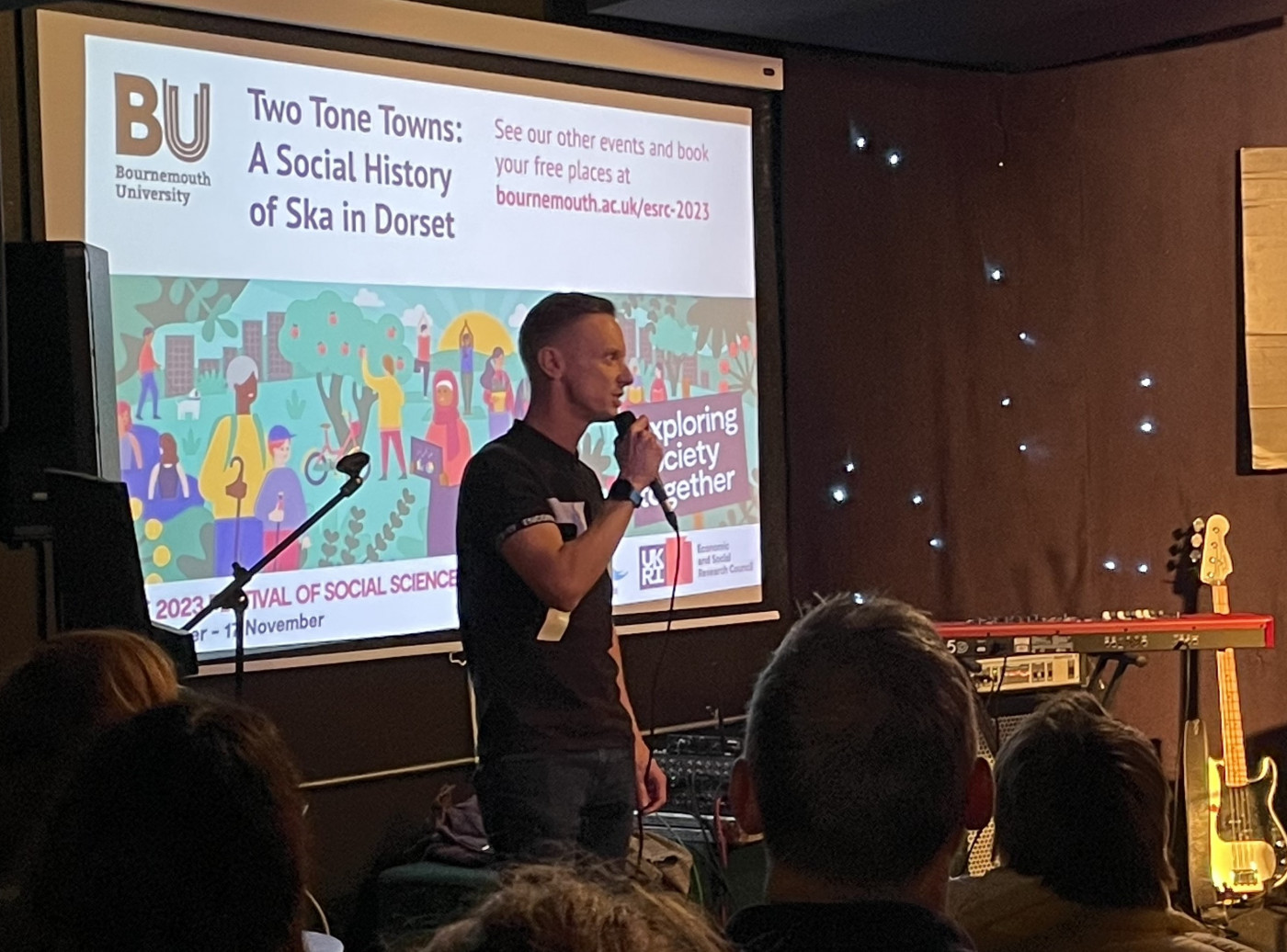 A fantastic opportunity to showcase your social science research!
A fantastic opportunity to showcase your social science research!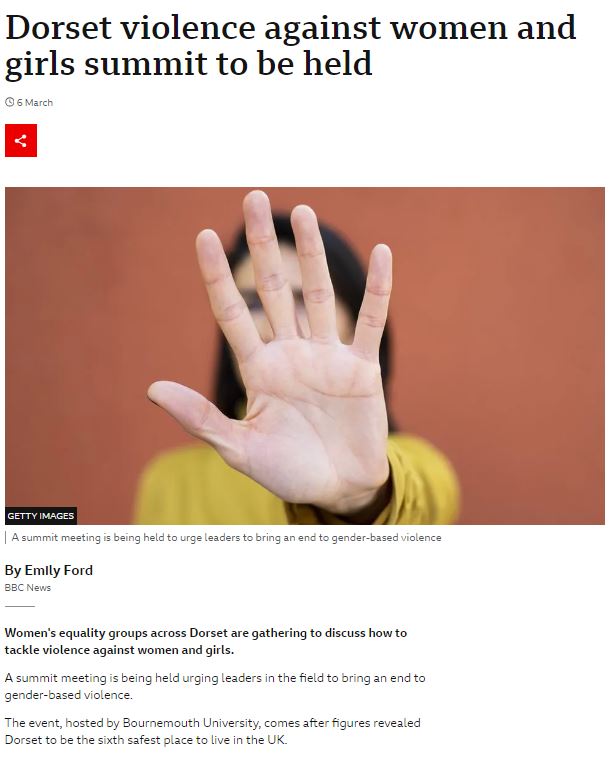

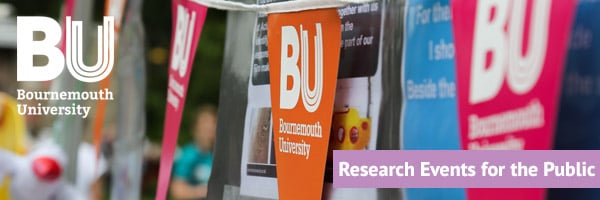

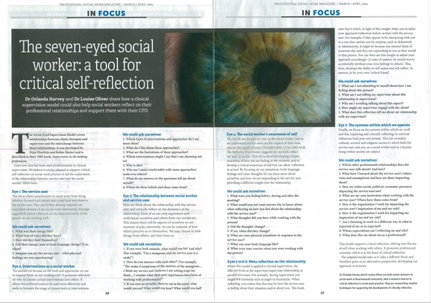
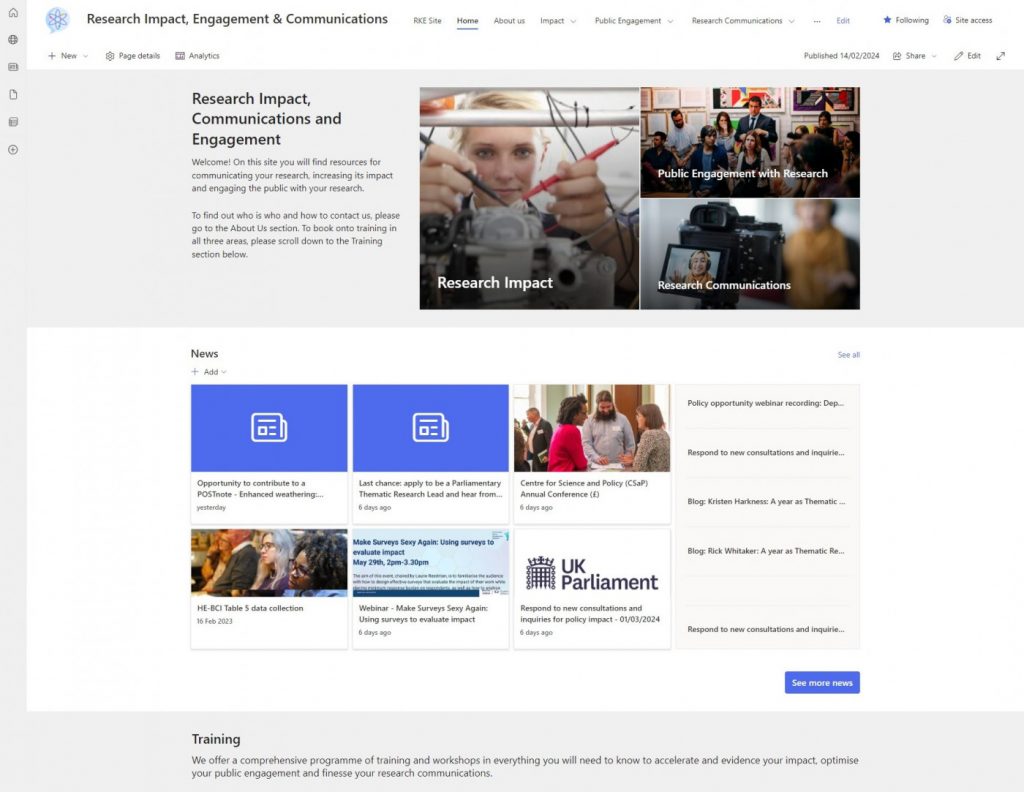
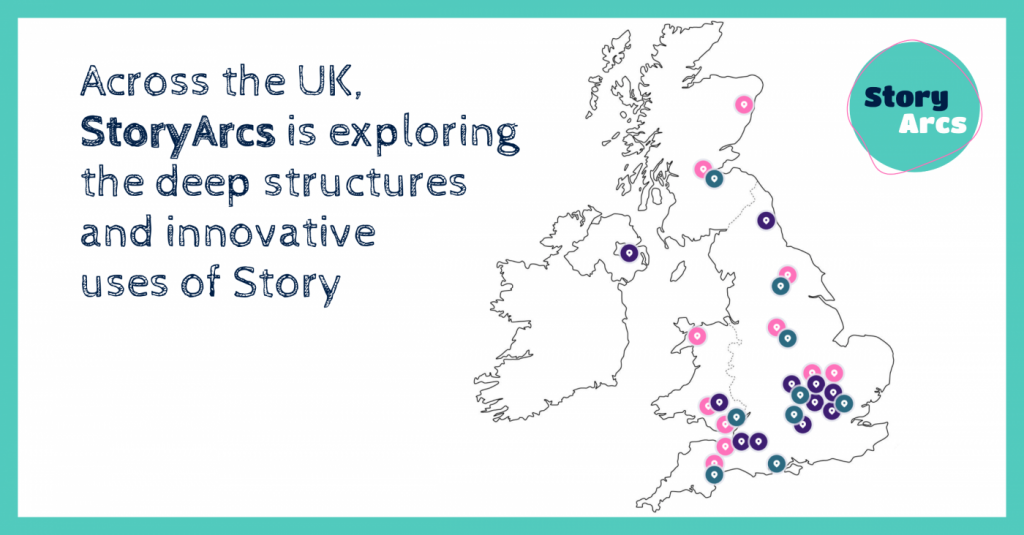

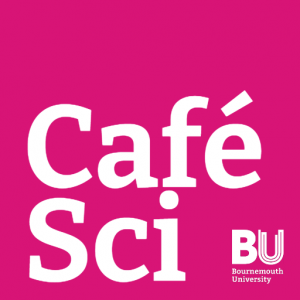
 We are looking for 3-4 post-graduate researchers to take part in a special edition of our Café Scientifique public event series to
We are looking for 3-4 post-graduate researchers to take part in a special edition of our Café Scientifique public event series to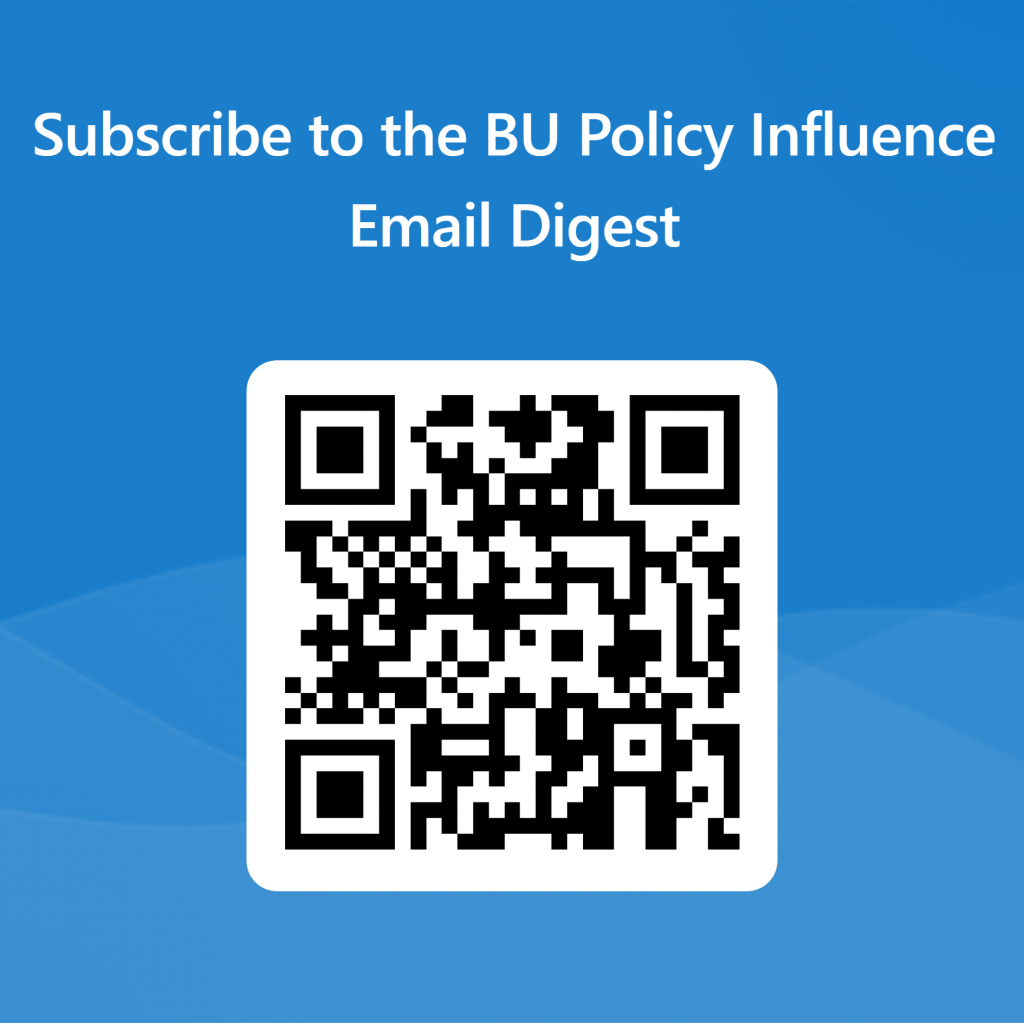

 Coffee & Konfer Surgery – 2:00 – 4:30pm
Coffee & Konfer Surgery – 2:00 – 4:30pm











 REF Code of Practice consultation is open!
REF Code of Practice consultation is open! BU Leads AI-Driven Work Package in EU Horizon SUSHEAS Project
BU Leads AI-Driven Work Package in EU Horizon SUSHEAS Project Evidence Synthesis Centre open at Kathmandu University
Evidence Synthesis Centre open at Kathmandu University Expand Your Impact: Collaboration and Networking Workshops for Researchers
Expand Your Impact: Collaboration and Networking Workshops for Researchers ECR Funding Open Call: Research Culture & Community Grant – Apply now
ECR Funding Open Call: Research Culture & Community Grant – Apply now ECR Funding Open Call: Research Culture & Community Grant – Application Deadline Friday 12 December
ECR Funding Open Call: Research Culture & Community Grant – Application Deadline Friday 12 December MSCA Postdoctoral Fellowships 2025 Call
MSCA Postdoctoral Fellowships 2025 Call ERC Advanced Grant 2025 Webinar
ERC Advanced Grant 2025 Webinar Update on UKRO services
Update on UKRO services European research project exploring use of ‘virtual twins’ to better manage metabolic associated fatty liver disease
European research project exploring use of ‘virtual twins’ to better manage metabolic associated fatty liver disease